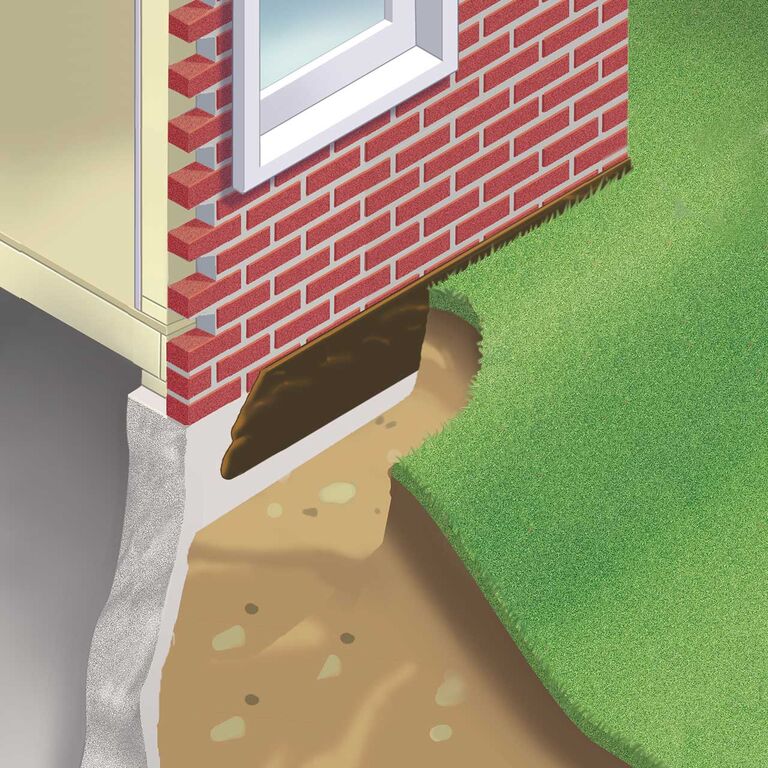Basement leaks and dampness can become more than an inconvenience if left unaddressed. Water intrusions can lead to structural damage, mold, and a decrease in your home’s value. Basement waterproofing comes in handy. These services are intended to protect your property from the inside out. This will ensure that your cellar is functional and safe.
Understanding basement waterproofing and its benefits will help you make an informed decision, whether you are trying to solve a chronic flooding problem or want to prevent further issues.
Common Causes Of Basement Water Problems
Understanding the reasons why water gets into your basement is essential before deciding on waterproofing techniques. Most commonly, these are the causes:
- Drainage around the foundation is poor
- Cracks or cracks in floors or walls
- Hydrostatic force from saturated soil
- Leaking window wells, plumbing, or other
- Gutters or downspouts damaged by clogging
Selecting the best waterproofing technique requires determining the reason.
Interior Basement Waterproofing Techniques
1. Interior Sealants: Sealing basements with interior sealants is an easy and inexpensive process. Sealants, which are applied to walls and floors inside the basement to prevent moisture from penetrating, stop moisture from entering. The sealants don’t completely stop the water, but they prevent it from entering the area.
2. Interior Drainage Systems: These systems install a drainage system along the interior perimeter of the floor. The channel collects water entering the foundation. It then goes into the sump pump, which pumps the water out of the home. This method effectively manages hydrostatic tension and prevents basement flooding.
3. Sump Pumps: The typical location for a sump pump is a pit at the lowest point in the basement. The water is pumped out by the pump when the water level in the pit increases. This is an integral part of many waterproofing solutions, particularly in areas with heavy rainfall or high groundwater levels.
Exterior Basement Waterproofing Techniques
1. Excavation and Membrane Installation: Before applying a waterproofing membrane, this more involved technique involves excavating a trench around the foundation. Once the excavated area is repaired, cracks are sealed, and a protective covering can be applied to prevent water from leaking into the foundation.
2. Exterior Drainage Systems: An external French drain consists of a perforated pipe surrounded by gravel. This system will redirect groundwater away, keeping the basement drier.
3. Downspouts & Gutter Extensions: Simple yet often overlooked, ensuring downspouts and gutters extend sufficiently from the basement foundation can help reduce water problems. The water will not pool near your foundation or seep into the basement if you direct it at least 10 feet away from your house.
Discover professional basement waterproofing services that are tailored to your home’s unique needs. If your basement is prone to flooding or you live in an area that experiences frequent rainfall, it’s essential to hire experts to assess the property.
Basement Waterproofing Offers Many Benefits
1. Mold and Mildew Cannot Grow: Mold thrives in moist environments, which can lead to respiratory issues or other health problems. Waterproofing reduces humidity in an indoor space and fosters a healthy atmosphere.
2. Protects Your Home’s Structure: Water can erode the structure of your home over time. Waterproofing your home protects its structural integrity by reducing soil stress and stopping leaks.
3. Increased Usable Space: A basement can be converted into a useful area for storage, laundry, or even a finished room.
4. It increases the Value of Your Home: Homes with a history of flooding or visible water damage are more difficult to sell. A professionally waterproofed home basement will signal to buyers that the house is well-maintained.
5. Long-term savings: While waterproofing does require an upfront investment, it is a cost-effective way to prevent foundation issues, water damage, and mold remediation.
When To Call A Professional
Request assistance if you notice any signs of moisture intrusion. These include damp walls and ceilings, musty odors, or efflorescence. Professional services may offer long-term solutions and warranties.
Conclusion
Basement waterproofing improves the value, durability, and safety of a home. For every moisture issue, there are several techniques for addressing interior or exterior problems. The basement is susceptible to water damage from small seepages up to large flooding. Consult an experienced contractor to choose the right approach, and you will have peace of mind knowing that your home’s foundation is safe and protected.




